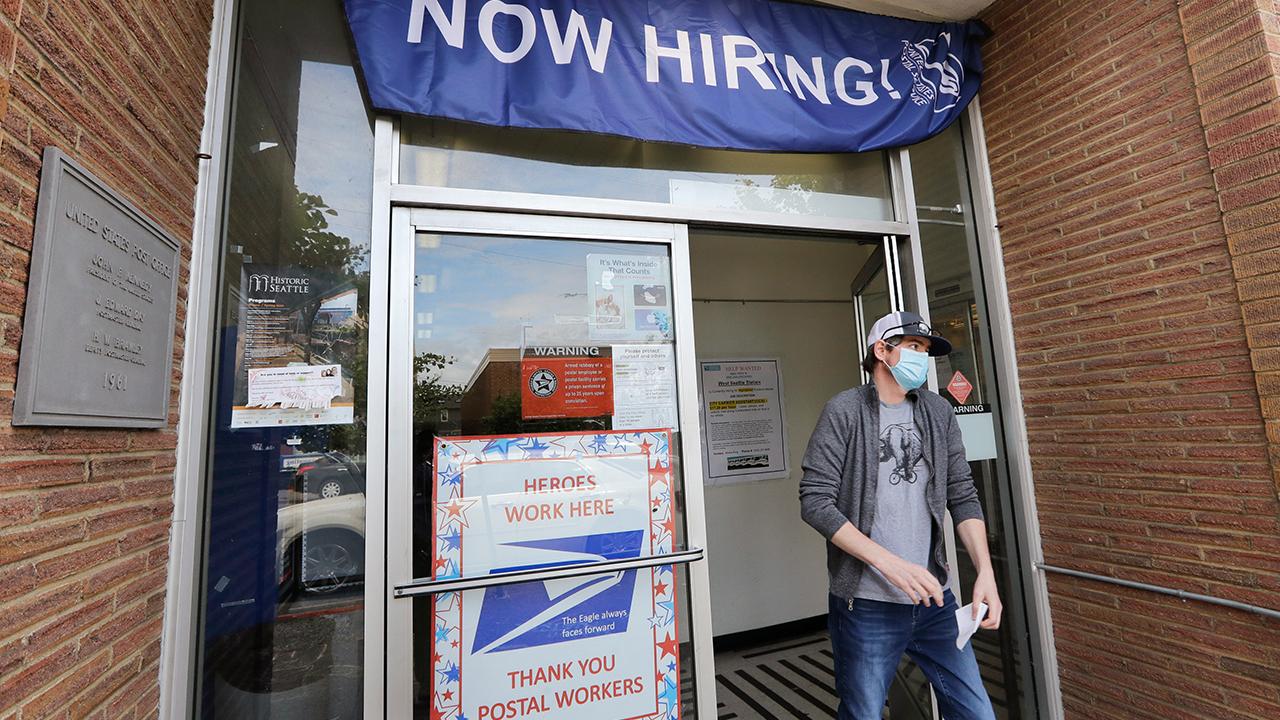Postal Service to consolidate postal districts, offer early retirement to non-union workers
USPS will also centralize district-level marketing and retail efforts
WASHINGTON - The U.S. Postal Service (USPS) said on Wednesday it is offering early retirement to non-union employees as it consolidates postal districts in an effort to stem billions in red ink.
The USPS will merge the existing 67 Postal Service Districts into 50 Districts and will also centralize district-level marketing and retail efforts, Postmaster General Louis DeJoy said in a statement.
USPS said the voluntary early retirement offers are going to non-bargaining employees at headquarters and district offices, declining to say how many positions it was seeking to eliminate.
USPS NOTCHES QUARTERLY PROFIT AMID SURGE IN COVID-DRIVEN ECOMMERCE SHOPPING
DeJoy plans to release a new 10-year strategic "break-even" plan this month.
Last month, DeJoy told lawmakers the U.S. mail system is losing $10 billion a year and urgently needs reform and legislative relief. "I would suggest that we are on a death spiral," DeJoy said.
Separately, USPS said Wednesday it will conduct an environmental impact statement on its planned purchase over 10 years' worth of 50,000 to 165,000 delivery vehicles.
DeJoy said last month USPS is committed to having electric vehicles make up 10% of its next-generation fleet.
THE USPS WILL NOT BE SAVED WITH MORE MONEY
USPS last month awarded a $482 million contract to Oshkosh Defense to finalize production for the next-generation postal vehicles. Workhorse Group Inc said this week it was meeting with USPS on Wednesday after the electric-vehicle maker lost a multibillion-dollar contract to Oshkosh. USPS declined to comment.
| Ticker | Security | Last | Change | Change % |
|---|---|---|---|---|
| OSK | OSHKOSH CORP. | 171.71 | +8.23 | +5.03% |
USPS will evaluate the environmental impacts of the purchases and operation "as well as a commercial off-the-shelf vehicle alternative and a 'no action' alternative," it said in a notice.
GET FOX BUSINESS ON THE GO BY CLICKING HERE
The USPS faces shrinking volumes of first-class mail, increased costs of employee compensation and benefits, and higher unfunded liabilities.
Postal Board chairman Ron Bloom, who said that the USPS is currently projected to lose $160 billion over the next decade, told lawmakers last month "we can’t just throw money at the problem. We must address the systemic issues plaguing its outdated model."




















